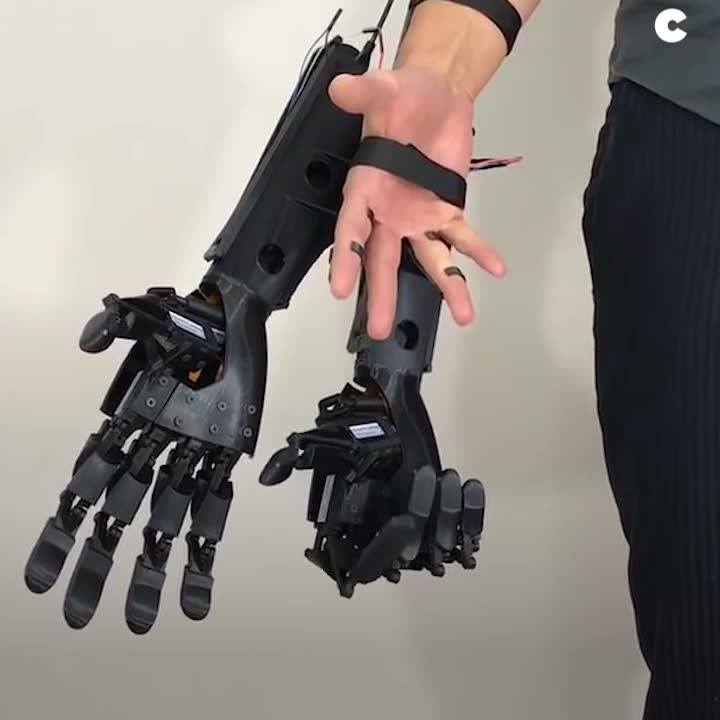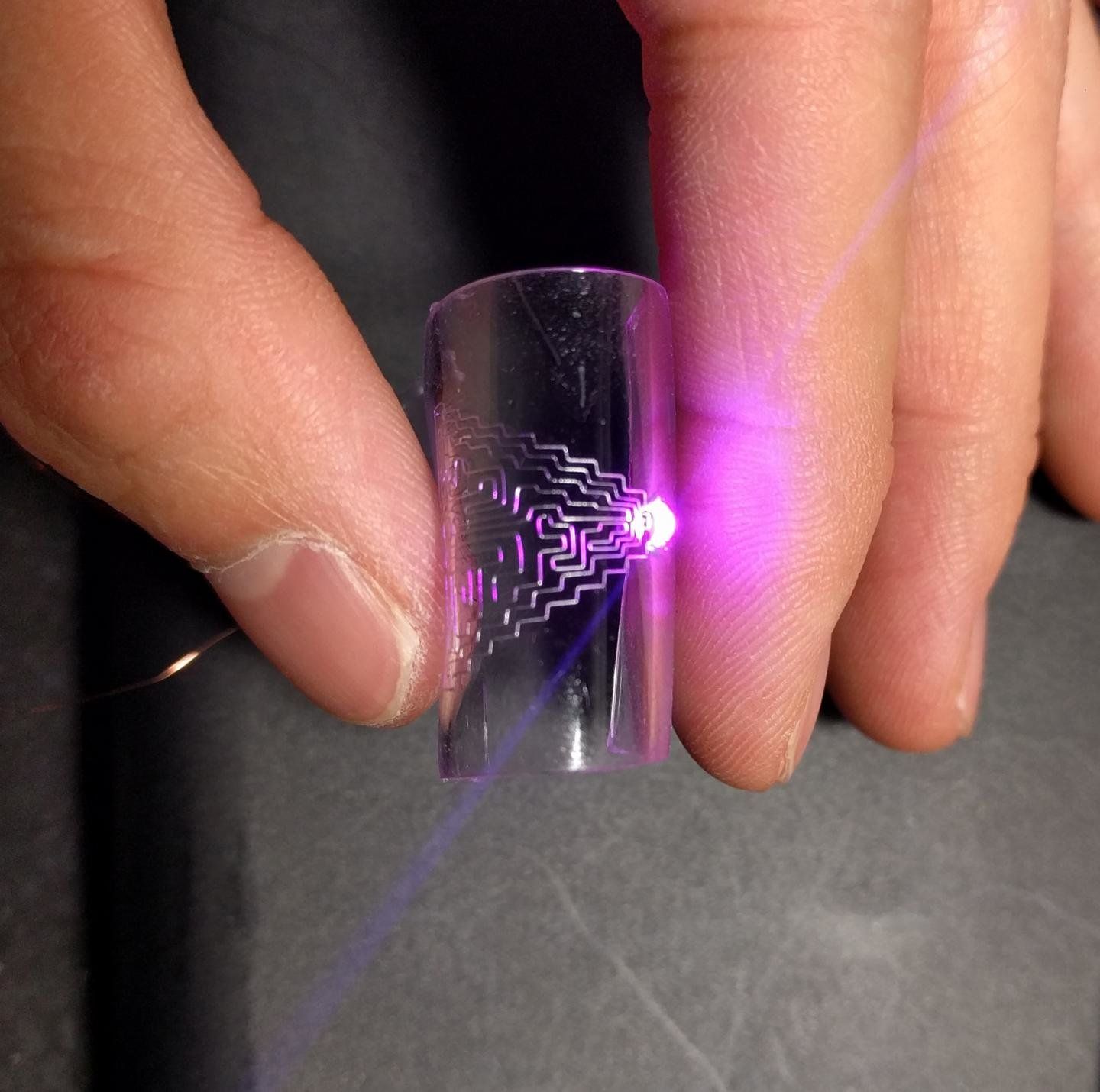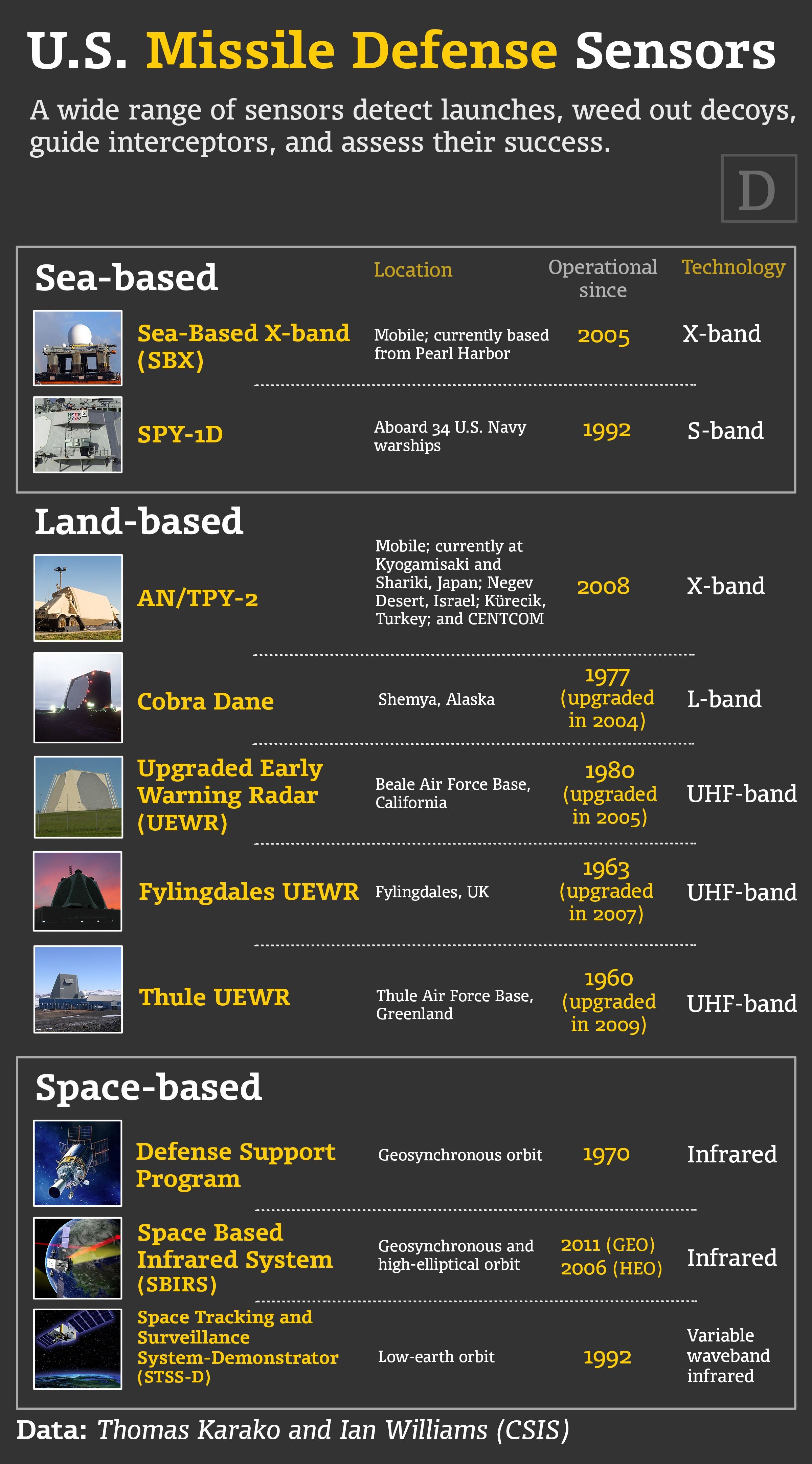Archive for the ‘electronics’ category: Page 68
Jan 5, 2018
Proximity Tags Emit Radio Waves to Monitor Heart, Lungs, Blood Pressure
Posted by Roman Mednitzer in categories: biotech/medical, electronics
Contact-free measurement of vital signs is already a reality, but with a few important limitations some of which researchers at Cornell University may be able to overcome. Currently used devices typically require the patient to be in close proximity to the sensor, and they’re only able to measure the breathing and heart rates, along with body movement.
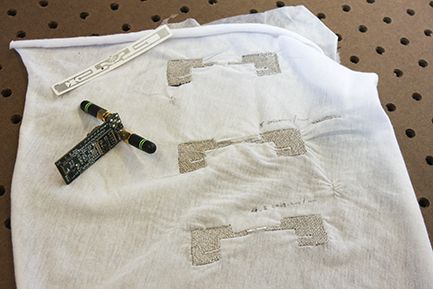
Technology developed at Cornell involves tags worn on clothing, or just placed near the patient, that emit radio waves toward the lungs and heart to measure their activity accurately, while allowing the patient to move around. Additionally, blood pressure may also be measured this way, but more work will be required to validate the technology.
Continue reading “Proximity Tags Emit Radio Waves to Monitor Heart, Lungs, Blood Pressure” »
Dec 20, 2017
This company believes they can evolve the human race
Posted by Shane Hinshaw in category: electronics
Dec 20, 2017
Metal printing offers low-cost way to make flexible, stretchable electronics
Posted by Saúl Morales Rodriguéz in categories: electronics, engineering
Researchers from North Carolina State University have developed a new technique for directly printing metal circuits, creating flexible, stretchable electronics. The technique can use multiple metals and substrates and is compatible with existing manufacturing systems that employ direct printing technologies.
“Flexible electronics hold promise for use in many fields, but there are significant manufacturing costs involved — which poses a challenge in making them practical for commercial use,” says Jingyan Dong, corresponding author of a paper on the work and an associate professor in NC State’s Edward P. Fitts Department of Industrial & Systems Engineering.
“Our approach should reduce cost and offer an efficient means of producing circuits with high resolution, making them viable for integrating into commercial devices,” Dong says.
Continue reading “Metal printing offers low-cost way to make flexible, stretchable electronics” »
Nov 30, 2017
Stretchsense Behind “Disappearable” Zozosuit Smart Garment
Posted by Klaus Baldauf in categories: electronics, wearables
New Zealand-built technology enabling an entirely new type of wearable
AUCKLAND, NOVEMBER 22, 2017 — StretchSense Ltd., New Zealand-based manufacturer of wearable sensing systems, today is proud to see the release of ZozoSuit by its client and investor Start Today Co., Ltd., owner of Japan’s largest online fashion retailer. The first consumer-ready wearable product built with StretchSense’s unique sensor technology, the ZozoSuit was developed in close collaboration between the two companies and provides precise measurement of body shape to solve the problem of fit when buying clothes online.
StretchSense’s mission is to go beyond wearables and towards “disappearables” — truly smart garments with unobtrusive sensors and electronics that feel invisible to the wearer. The ZozoSuit is a realization of that vision, blurring the line between clothing and technology with lightweight sensing elements, flexible cabling and miniaturized electronics all fully integrated into a skin-tight garment.
Continue reading “Stretchsense Behind ‘Disappearable’ Zozosuit Smart Garment” »
Nov 18, 2017
US Missile Defenses Need Better Sensors, and Soon
Posted by John Gallagher in categories: electronics, security
Gaps in coverage leave interceptors less-equipped to defeat the threats of tomorrow.
No missile defense is better than the sensors that tell the interceptors where to go and what to kill. The Ground-based Midcourse Defense system, or GMD, draws upon considerably more sensors for homeland defense than when operations began in 2004, but shortfalls remain. The North Korean and other missile threats are not diminishing, and it’s time to get this right.
In a forthcoming report, we recommend that the Defense Department and Missile Defense Agency take several steps to improve the sensor backbone of America’s homeland missile defenses, including fielding a space layer, filling radar gaps, adding omnidirectional focus, and improving command and control. Unfortunately, the budget for missile defense sensors has fallen considerably over the past decade, exactly the wrong trend for our changing security environment.
Continue reading “US Missile Defenses Need Better Sensors, and Soon” »
Nov 15, 2017
Integrated circuits printed directly onto fabric for the first time
Posted by Shailesh Prasad in categories: electronics, wearables
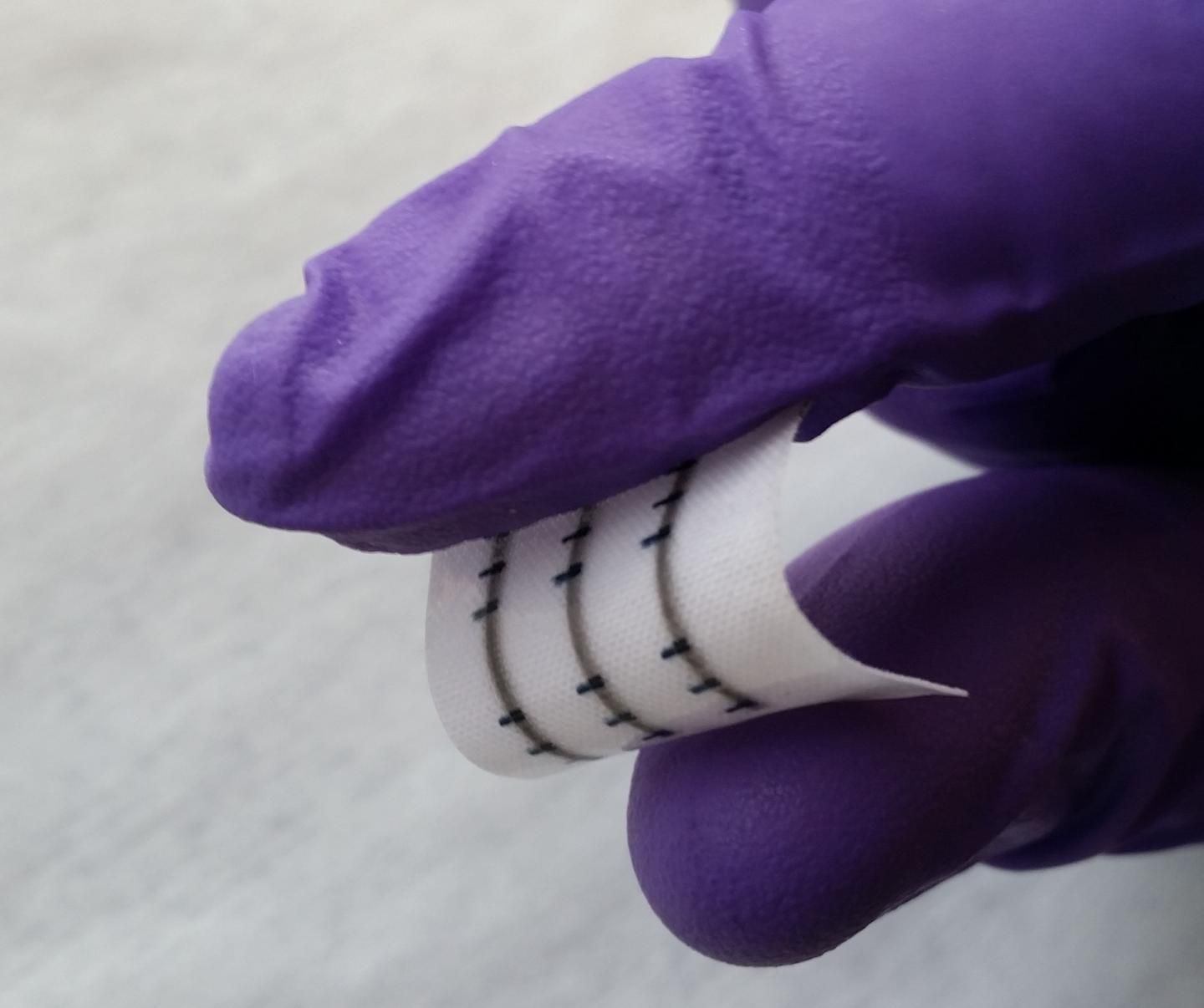
Researchers at the University of Cambridge, working with colleagues in Italy and China, have incorporated washable, stretchable, and breathable integrated electronic circuits into fabric for the first time — opening up new possibilities for smart textiles and wearable textile electronic devices.
The circuits were made with cheap, safe, and environmentally friendly inks, and printed using conventional inkjet-printing techniques.
Continue reading “Integrated circuits printed directly onto fabric for the first time” »
Nov 2, 2017
Unbelievably Fast Processing for Nanoelectronics
Posted by Klaus Baldauf in categories: electronics, nanotechnology

As luck would have it, we may be on the verge of another revolution in miniaturization, this time through nanoelectronics.
Creating electronics at the nanoscale is difficult and has faced limitations but those limitations may be a thing of the past. Researchers from the National University of Singapore have developed a “converter” for nanoelectronic devices that could allow them to use plasmons for data processing.
Continue reading “Unbelievably Fast Processing for Nanoelectronics” »
Oct 26, 2017
This ‘Living Touch Screen’ Is Made out of Bacteria and Gold
Posted by Klaus Baldauf in categories: electronics, materials
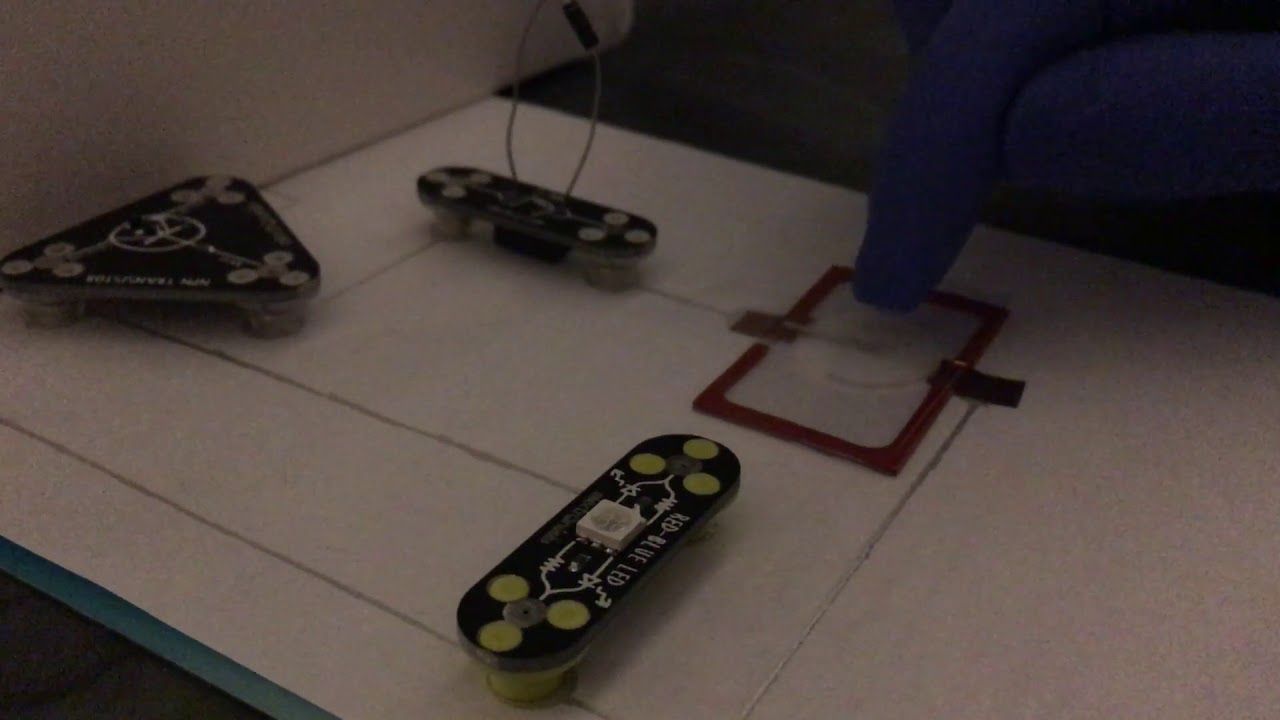
A demonstration of the pressure sensor built by bacteria in action as a researcher taps out some Morse code.
As wonderfully bizarre as it sounds, growing touch screens from a bacterial soup isn’t the team’s ultimate goal.
Continue reading “This ‘Living Touch Screen’ Is Made out of Bacteria and Gold” »
Oct 18, 2017
Cities compete to become Japan’s Silicon Valley
Posted by Derick Lee in categories: economics, electronics
Every modern economy wants its own version of Silicon Valley and in Japan the urge to find or create one is just as strong. Although the country’s pedigree as an innovator is not in doubt, rapidly adapting to the digital age has proven challenging for its once-mighty consumer electronics companies.
Fukuoka, Kyoto and Tokyo’s Shibuya district are all staking their claim.


